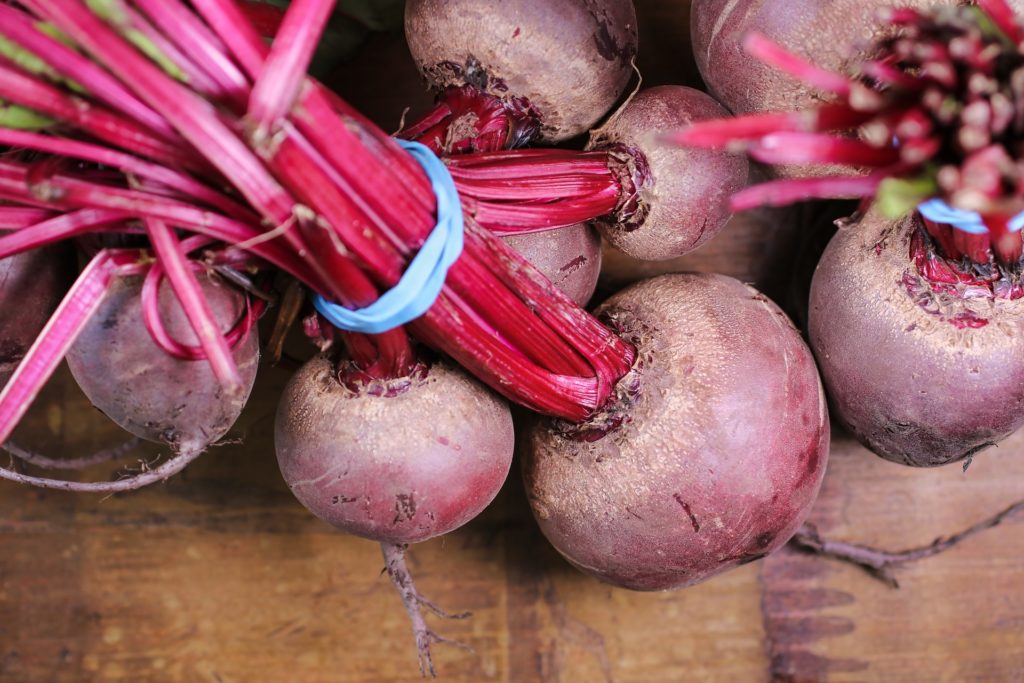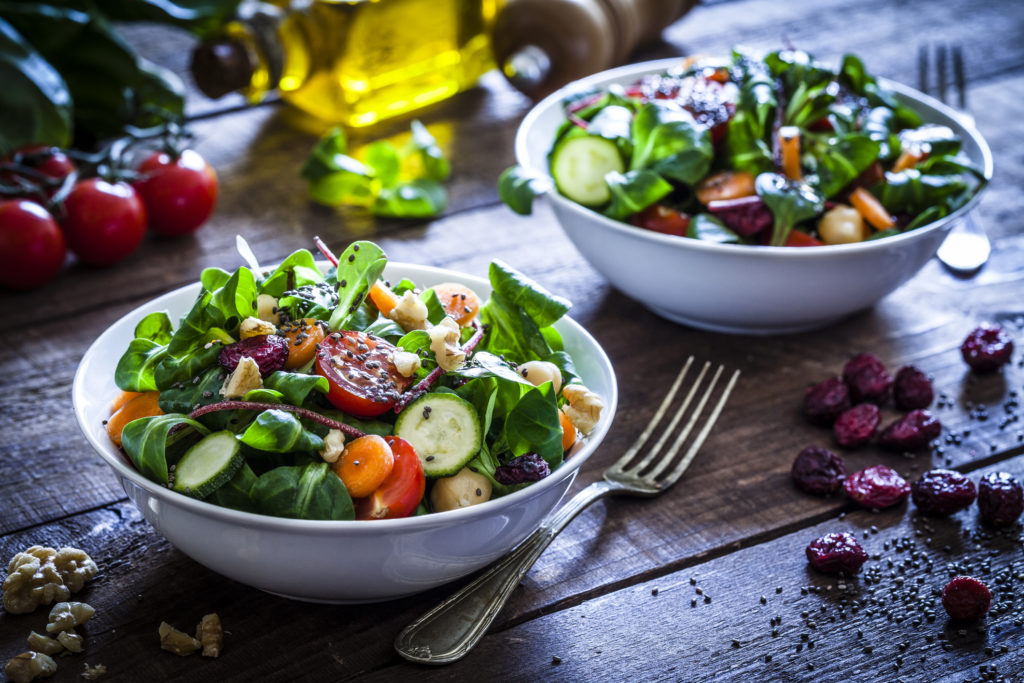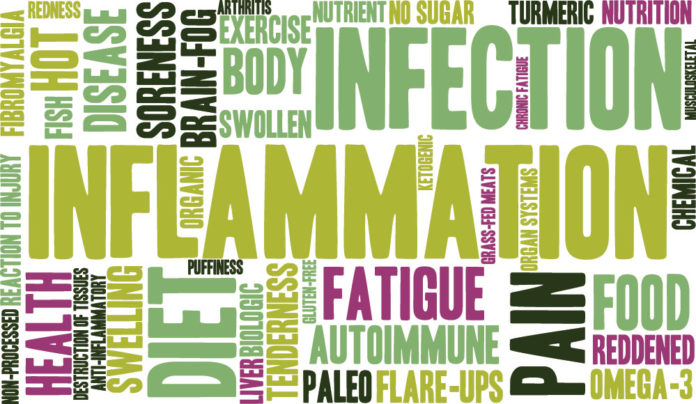Let us begin by understanding what is inflammation means?
Inflammation happens to everyone and it is not something that you can see. Inflammation occurs in the body when the immune system is activated. It is considered a defense mechanism used by the body to protect against disease, injury, or infection. The body senses that something is wrong, so it sends blood cells to that area to help heal what is wrong and kill off any invaders.
However, not all inflammation is good. If inflammation persists for a prolonged period, it becomes chronic inflammation. Chronic inflammation happens when this response lingers, leaving your body in a constant state of alert. Chronic inflammation is not just a symptom of infectious disease, it plays a central role in a wide range of non-infectious diseases.
The great news is that there are several things that you can do to decrease widespread inflammation quickly, reducing your risk of dangerous and deadly diseases. When you adopt these nine healthy habits, your body will thank you, and you will have increased energy, improved memory, and weight loss. Plus, many more visible positive impacts – not to mention long-term protection from inflammatory diseases.
Daily greens
One of the most effective ways is by juicing leafy greens with highly alkaline vegetables to accompany them. Just a cup of greens each day can make a tremendous difference to your health. They contain antioxidants and bioactive compounds that reduce inflammation and prevent free radicals from creating new inflammation.
Along with the effective way, combined with juicing, reducing inflammation is to decide to live a simpler lifestyle which includes: being of service to others; learning the art of forgiveness, and removing yourself from toxic relationships. In the end, our psychological well-being is intimately connected to our physical health.
We spend about one-third of our life asleep and could not survive without this downtime. When we are asleep our body does the incredible work of repair and rejuvenation. Health experts advise not to take lightly the basic rule of seven to eight hours of sleep daily. Poor sleep can cause our bodies to be more susceptible to inflammation and increases the risk of heart disease, diabetes, metabolic issues leading to obesity and dementia, and Alzheimer’s.

Ditch one cup of coffee for green tea
Do you regularly drink three or four cups of coffee daily? If so, substitute at least one of these cups with a cup of green tea. This health-promoting herbal tea has been used by various cultures around the world for thousands of years, green tea contains the highest concentration of powerful antioxidants called polyphenols. Polyphenol compounds reduce damage caused by free radicals and stop inflammation. Green tea may help fight inflammatory conditions like Crohn’s disease, ulcerative colitis, inflammatory bowel disease, and certain cancers.
Try green tea hot or iced with lemon and raw honey for an amazing inflammation-reducing treat!
Go wheat and grain-free
Gluten, a protein found in wheat, rye, corn, soy, and oats, may lead to inflammation in sensitive individuals. Gluten has a disastrous impact on health that causing various allergies, sensitivities, and disorders. It is also a leading cause of obesity and chronic disease. Yet, its elimination quickly solves the problem. Try cutting it out for two weeks to see the response of your body and see if there is an improvement. Note that you mustn’t eat it to see the effects of a gluten-free diet.
Love your gut
Your gut is the gateway to your health. When harmful bacteria in the gut overpower the good, it can lead to many issues such as mood imbalances, hormonal imbalances, seasonal allergies, or even autoimmune diseases. Part of the solution prescribed will often be to consume probiotics. Including some raw foods like yogurt, kombucha, kimchi, and sauerkraut daily helps reduce inflammation. Any non-dairy, gluten-free fermented product is likely to be a good fit too.
Relax
People who experienced negative emotions and stress several times throughout the day had consistently higher inflammation biomarkers. Conversely, positive emotions and moods were only experienced for a short period, lowering the levels of inflammation. Furthermore, make sure you exercise regularly, have deep breathing exercises, manage stress levels, do yoga, sleep well, journal, do mini time-outs, etc… to control the stress in your life. Also, learn to say no and take regular walks in nature and just relax.
Take your dog for a walk
In general, people with pets tend to be happier, tended to have less stress, and had higher self-esteem. Research shows that getting as little as 20 minutes of movement daily reduces inflammatory blood markers and will make you feel more energetic and happier.
Quit hiding from the sun
Sunlight exposure has been shown to lower blood pressure, aid in soothing skin disorders, and boost mood. Do you know that it can also fight inflammation?
A little bit of sunshine daily can reduce the number of activated cells that accuse inflammation. This is due to the sun’s rays causing nitric oxide stored in the skin to be released. What works is a little bit of sun consistently.

These foods listed below will help you reduce inflammation and avoid health problems
1: Beets: Beets contain betalains (that are responsible for the beet’s vibrant color), that offer potent anti-inflammatory properties, soothe pain and discomfort, and help repair cell damage caused by systemic inflammation.
2: Blueberries: Blueberries are super delicious and a powerful antioxidant that can help fight off free radicals in the body. Their anti-inflammatory benefits extend to warding off other chronic conditions caused by systemic inflammation, including autoimmune disease.
3: Walnuts: Walnuts provide healthy fats, fiber, vitamins, and minerals. Walnuts are also very high in their unique antioxidant compounds; the antioxidants flow from the abundance of vitamin E, melatonin, and polyphenols within the nut. A recent study, published in the Journal of the American College of Cardiology (JACC), has further found that the inclusion of walnut in our usual diet may help reduce inflammation in the human body. Consuming walnuts appear to reduce this impact.
4: Pineapple: Pineapple is one of the top anti-inflammatory foods. High in bromelain which not only packs in a nice dose of anti-inflammatory benefits but helps assist with digestion as well. Add pineapple to your fruit plate, smoothies, or juice to help fight inflammation, enhance digestion, and keep your immune system strong.
5: Turmeric: Turmeric is an extremely potent anti-inflammatory spice and many recent studies that the active ingredient of turmeric, curcumin, have shown that it is even more effective at reducing inflammation than NSAIDs such as aspirin and ibuprofen.
One delicious way to incorporate turmeric into your diet is by drinking golden milk. This warming beverage is great at fighting inflammation, making it an excellent alternative to your morning coffee.
6: Ginger: Ginger is common in cooked foods and hot beverages, it adds a kick of flavor to smoothies and juices, soups, sauces, and stir-frys. Ginger also has a major immune booster and inflammation fighter. It can be also used in tea to aid digestion.
7: Tart Cherries: Tart cherries, also known as sour, dwarf, or Montmorency cherries, has rich in antioxidants that help fight free radicals.
8: Grapes: Grapes are nutrient-dense that has high in antioxidants. It is also known as anthocyanins, which reduce inflammation.
9: Celery: Celery is a natural anti-inflammatory, due to luteolin, a phytochemical that has numerous health benefits. It effectively fights inflammation and lowers inflammation in many parts of the body, including the brain.
10: Omega-3: Omega-3 fatty acids are essential fatty acids that are potent natural anti-inflammatories.
If you are looking to prevent inflammation, adding these inflammation-fighting foods to your diet may significantly help in keeping this scourge from compromising your health.

Here’s an anti-inflammatory juice recipe that serves 1 (1 liter)
The ingredients include:
2 cups parsley
2 cups spinach
2 large cucumbers
4 ribs celery
1-inch fresh ginger root or fresh turmeric root
1 lime without skin or 1 lemon without skin (unless it’s organic)
Don’t forget these important recommendations:
It is recommended to take this tonic daily. 1 liter per person for 60 days along with eating a diet high in salads.
For best results: eating essential fatty acids from foods like flaxseed or borage oils in salads, with lots of vegetables and some grains such as quinoa or millet tends to be better than eating lots of animal flesh foods.
Plus, don’t forget to keep yourself well-hydrated and add the other recommendations.
Takeaway
Inflammation can be severe and it should not be taken lightly. The majority of Americans suffer from an inflammatory condition that can rapidly ruin your life without you even knowing it is happening. Cutting down pro-inflammatory foods such as unhealthy (trans) fats, refined sugars, and processed meats can contribute to weight gain, poor cardiovascular health, and other conditions. But before making any lifestyle changes, it’s always best to speak with your doctor.
So, take a step starting today, for you to reduce inflammation so that you can look and feel your best!




Thank you for keys for good self care. Many of us are caretakers and tend to forget that we need to put ourselves in good health so we can better care for others as well as set an example for those less fortunate.